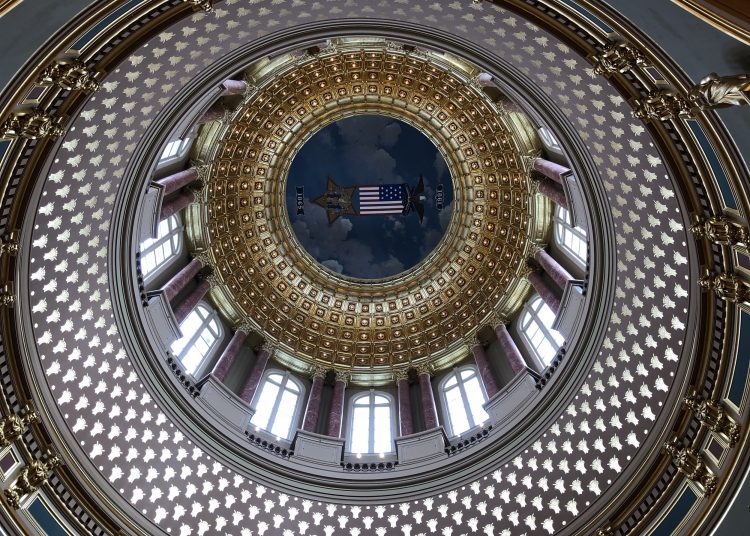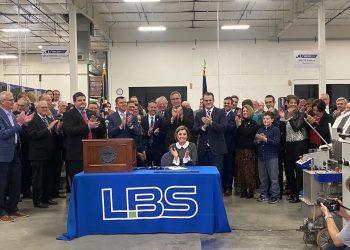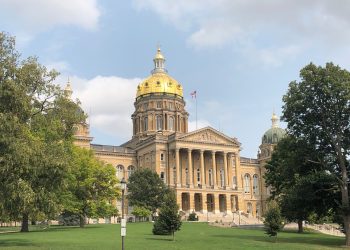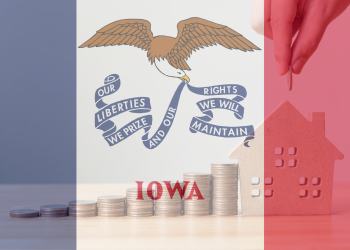Iowa’s high property taxes are a growing concern. The Tax Foundation examined the “effective tax rates on owner-occupied housing” across the United States. Iowa ranked 12th highest in the nation. At the heart of high property taxes is local government spending. Unless spending is controlled, any property tax relief will be limited. Iowa’s property tax system is complex, and more transparency is needed. Iowa should look to Utah’s Truth-in-Taxation law, which since 1985 has been controlling the growth of property taxes and providing transparency and accountability for taxpayers. Utah’s Truth-in-Taxation is the gold standard model for any property tax reform.
During the 2019 Iowa legislative session, the legislature passed a property tax accountability and transparency law. This new law requires local governments such as counties and cities (school districts were not included) to hold a public hearing if the proposed budget increases more than two percent above the previous year, and a supermajority vote for the increase to be enacted. This new two percent “soft cap” is meant to control the growth of property taxes and requires local governments to provide more transparency within the local budget process.
The 2019 law is often referred to as a “truth-in-taxation” measure and even though the measure did increase transparency and accountability, it should not be compared to Utah’s law. Utah’s Truth-in-Taxation law is considered one of the most taxpayer-friendly property tax laws in the nation. The Truth-in-Taxation law is a revenue-based limitation, which means as valuations increase property tax rates decrease.
Utah’s Truth-in-Taxation law guarantees that each taxing entity receives the same property tax revenues as the previous year including new growth. This prevents local governments from getting a windfall because valuations have increased. Truth-in-Taxation works to prevent local governments from benefitting from increased assessments. If assessments increase by 10 percent, it does not mean that local government budgets should increase by 10 percent.
If a local government wants to exceed the certified tax rate, it then requires a Truth-in-Taxation hearing that is accompanied by an extensive public notification and hearing process. Truth-in-Taxation also forces local government officials to take recorded votes to approve an increase in tax collections.
Through the Truth-in-Taxation process, local governments must justify why they want to increase taxes for additional spending, forcing them to be more transparent as to why they need additional tax revenue. A crucial aspect of Utah’s law is a direct notification requirement, where notices are sent to taxpayers, providing information on the proposed tax increase. It also includes the date, time, location of the Truth-in-Taxation budget hearing. This extensive public notification and hearing process has been successful, and taxpayers in Utah actively participate in Truth-in-Taxation hearings.
Iowa could implement a similar direct notification system either by e-mail or mail or both to let property taxpayers know of a potential tax increase. Iowa property taxpayers deserve greater transparency in understanding their total property tax bill. This will help prevent local governments from hiding windfalls from increased assessments and provide greater clarity for the taxpayer.
The objective of property tax reform should not be to single out certain classes of property but rather ensure all Iowans receive tax relief. In addition, property tax relief should not favor one class of taxpayer over another. For example, it is often argued that senior citizens on fixed incomes should have targeted property tax relief, but the danger in applying this targeted relief is that it shifts the tax burden to other taxpayers. The fixed income argument also becomes relative because the senior citizen may be on a fixed income, but so is the family with both parents working and trying to provide for their family.
If the goal is to ensure all Iowans receive property tax relief, then the best approach is to strengthen the 2019 property tax transparency and accountability measure by requiring a Utah-style Truth-in-Taxation process.















